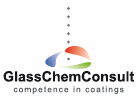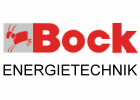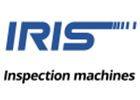学习信息
| 协会、设施 | The Fu Foundation School of Engineering and Applied Science |
| 教育类型 | University |
| 科目名称 | Materials Science and Minerals Engineering |
| 持续时间 | |
| 程度 | Master of Science degree |
联系方式
| 地址 | The Fu Foundation School of Engineering and Applied Science 524 Seeley W. Mudd Building Mail Code 4708 Columbia University New York, New York 10027 Telephone: 212-854-6438 |
| Internet | |
| 联系方式 |
描叙
Programs of Study
The Fu Foundation School of Engineering and Applied Science offers programs of study leading to the Master of Science degree, the Professional Engineering degree, and two doctoral degrees, the Ph.D. and the Eng.Sc.D., in the Departments of Applied Physics and Applied Mathematics, Biomedical Engineering, Chemical Engineering and Applied Chemistry, Civil Engineering and Engineering Mechanics, Computer Science, Earth and Environmental Engineering, Electrical Engineering, Industrial Engineering and Operations Research, and Mechanical Engineering. The faculty in the School consists of 127 full-time members.
These departments also provide the structure for graduate study leading to the master's and doctoral degrees in such interdisciplinary fields as applied mathematics, biomedical engineering, earth resources engineering, financial engineering, materials science, medical physics, plasma research, quantum electronics, solid-state science and engineering, and telecommunications engineering. A joint M.B.A./M.S. program is offered in cooperation with the Graduate School of Business in the fields of operations research, industrial engineering, and mineral economics.
The M.S. degree is awarded upon satisfactory completion of a minimum of 30 points of approved graduate study beyond the bachelor's degree. Programs leading to the Professional Engineering degree in engineering mechanics, computer science, and chemical, civil, electrical, industrial, mechanical, metallurgical, mineral, and mining engineering are available for engineers who wish advanced work beyond the level of the M.S. degree but do not wish to emphasize research. The Professional Engineering degree requires a minimum of 30 points of graduate work beyond the M.S. degree. Part-time programs leading to the master's and Professional Engineering degrees can be arranged in most departments. The minimum requirements for either the Ph.D. or the Eng.Sc.D. are the completion of 60 points of approved graduate work beyond the B.S., the passing of appropriate qualifying examinations as prescribed by a department or interdisciplinary committee, and the completion and oral defense of a dissertation based on original research.
Materials Science and Minerals Engineering
Research in materials science includes microscopic study of interfaces, grain boundaries, and thin films; lattice defects and electrical properties of ceramics; laser processing and solidification of silicon; and optical and electrical properties of wide-band gap semiconductors. Research at the Langmuir Center for Colloids and Interfaces includes the enhancement of oil recovery by means of ficellar flooding of reservoirs, electroflotation of mineral particles, microbial interactions with minerals, selective flocculation of fine particles, and ultrafine grinding. There are many research projects in surface and colloid chemistry that involve both inorganic and organic materials, such as surfactants, polymers, and latexes.




















